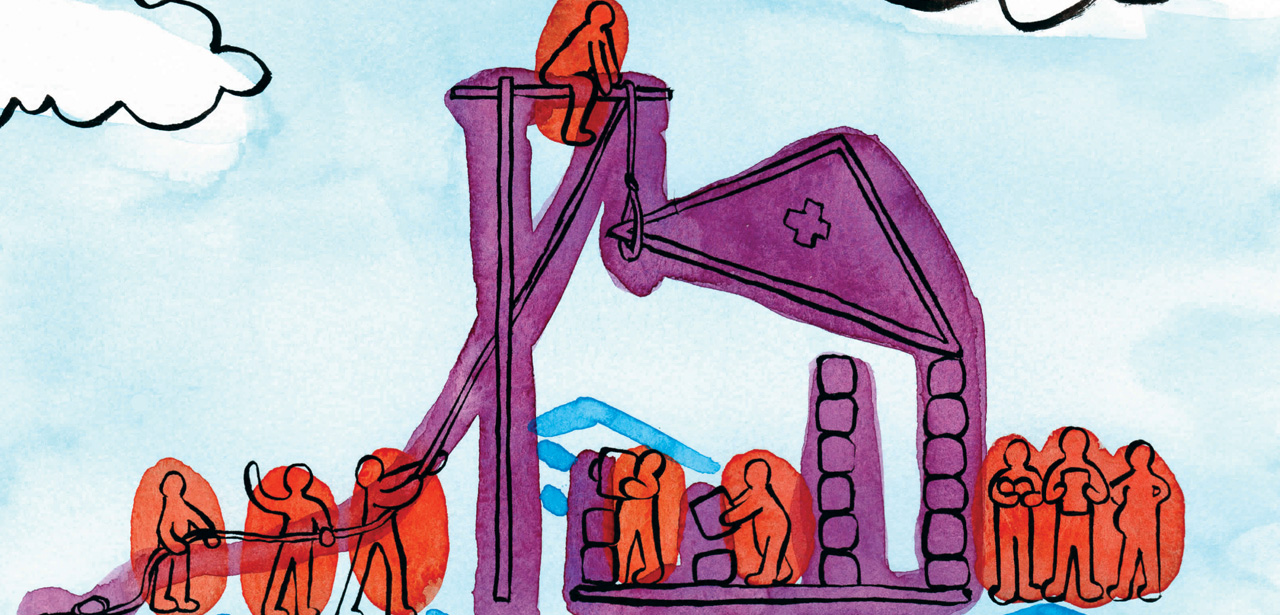AIMS: To evaluate the impact of cardiac rehabilitation (CR) on optimization of secondary prevention treatments for acute coronary syndrome (ACS), medication persistence, medical follow-up, rehospitalisation, and all-cause mortality. METHODS: The national health insurance database was used to identify all patients hospitalised for ACS in France in 2019 and those among them who received CR. Patients" characteristics and outcomes were described and compared between CR and non-CR patients. Poisson regression models were used to identify the impact of CR after adjusting for confounders. A Cox model was fitted to identify the variables related to mortality after adjustment for medication persistence and cardiologic follow-up. RESULTS: In 2019, 22% of 134,846 patients hospitalised for ACS in France received CR within six months of their discharge. After one year, only 60% of patients who did not receive CR were still taking BASI drugs (combination of Beta blockers, Antiplatelets agents, Statins and RAAS Inhibitors). This rate and the medical follow-up rate were higher in patients who received CR. Two years after the ACS event, patients who received CR had better medical follow-up and lower mortality risk, after adjusting for cofounding variables (adjusted HR all-cause mortality = 0.65 [0.61-0.69]). After adjustment for the dispensing of cardiovascular drugs and cardiologic follow-up, the independent effect of CR was not as strong but remained significant (HR = 0.90 [95%CI: 0.84-0.95]). CONCLUSION: Patients who received CR after hospitalisation for ACS had a better prognosis. Optimization of efficient secondary prevention strategies, improved medication persistence, and enhanced cardiologic follow-up seemed to play a major role.
Auteur : Blacher Jacques, Olié Valérie, Gabet Amélie, Cinaud Alexandre, Tuppin Philippe, Iliou Marie-Christine, Grave Clémence
European journal of preventive cardiology, 2024, p. Online ahead of print


